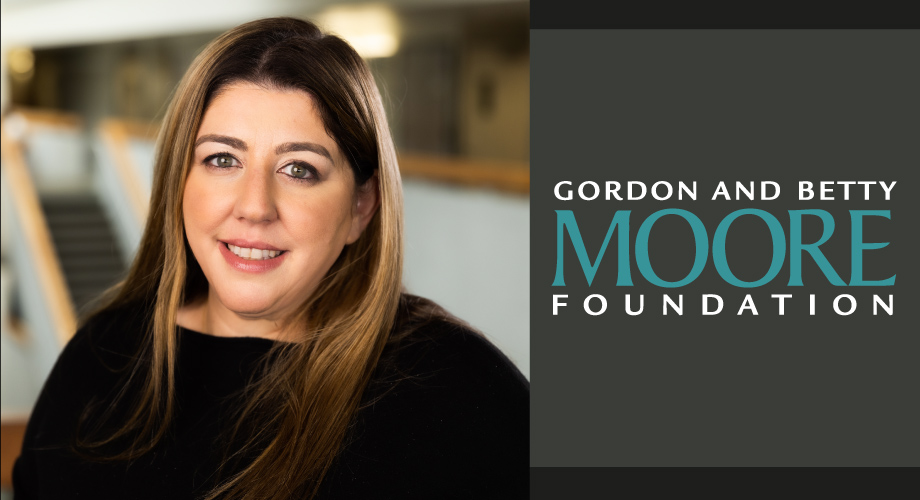
Scripps Research assistant professor Keren Lasker, PhD.
Keren Lasker named a 2023 Moore Inventor Fellow
The prestigious award will support Lasker’s inventive research in membraneless organelles and their application in neurodegenerative diseases.
October 04, 2023
LA JOLLA, CA — Keren Lasker, PhD, an assistant professor in the Department of Integrative Structural and Computational Biology at Scripps Research, has been named a 2023 Moore Inventor Fellow. The prestigious award will support Lasker’s research into novel therapeutics that could potentially treat or even cure neurodegenerative diseases, among other serious health conditions.
“I’m incredibly appreciative of the support from the Gordon and Betty Moore Foundation. Their endorsement will be pivotal in translating our lab’s discoveries into therapeutics for patients, while providing invaluable mentorship opportunities and fostering connections with fellow entrepreneurs,” Lasker says. “Gordon Moore’s curiosity-driven path has resonated with me since childhood, and being awarded this fellowship reinforces the importance of pursuing basic science to propel innovation.”
The fellowship, supported by the Gordon and Betty Moore Foundation, recognizes scientist-inventors who are developing innovative technologies in one of the foundation’s areas of interest: scientific discovery, environmental conservation and patient care. Named for Gordon Moore—co-founder of Intel Corporation and proposer of Moore’s law—the Moore Inventor Fellowship was put in place to nurture the next generation of scientists and inventors. Lasker is one of five fellows selected for the 2023 award, and she will receive a total of $825,000 over three years to advance her research.
“The Moore Inventor Fellowship recognizes the power of innovation to solve problems and reimagine our world,” says Harvey V. Fineberg, MD, PhD, president of the Gordon and Betty Moore Foundation.
At Scripps Research, Lasker is focused on characterizing and engineering membraneless organelles (MLOs) to ultimately treat a myriad of diseases. She describes MLOs as liquid-like droplets—similar to how vinegar clumps together in oil—that have recently been shown to play a critical role in health and disease. Her lab is pioneering a way to engineer a specific bacterial MLO to create synthetic organelles in human cells. These synthetic MLOs have the potential to selectively recruit the toxic aggregates that form in a range of different conditions, including neurodegenerative diseases and cancer.
“Neurodegenerative diseases alone are expected to become the second-leading cause of death by 2040, and new solutions are desperately needed,” Lasker says. “This type of technology could allow us to identify a toxic aggregate—like those that form in Alzheimer’s—and absorb it into the synthetic condensate, thereby clearing it out from the cell.”
A mathematician-turned-biologist, Lasker has always followed her curiosity and passion, fostering a deeper understanding of the principles that drive innovation and technology. She received a BSc in mathematics and computer science, as well as an MSc and a PhD in computer science, from Tel Aviv University. While completing her computational structural biology studies and analyzing cryo-EM data during her PhD, she became increasingly more fascinated by the biology component of her research. This is what eventually led her to complete her postdoctoral fellowship at Stanford University, which is where she pioneered the cutting-edge research that led to the discovery of MLOs in bacterial cells—the same organelles she is investigating in her lab today.
View the full list of Moore Inventor Fellows here.
For more information, contact press@scripps.edu

